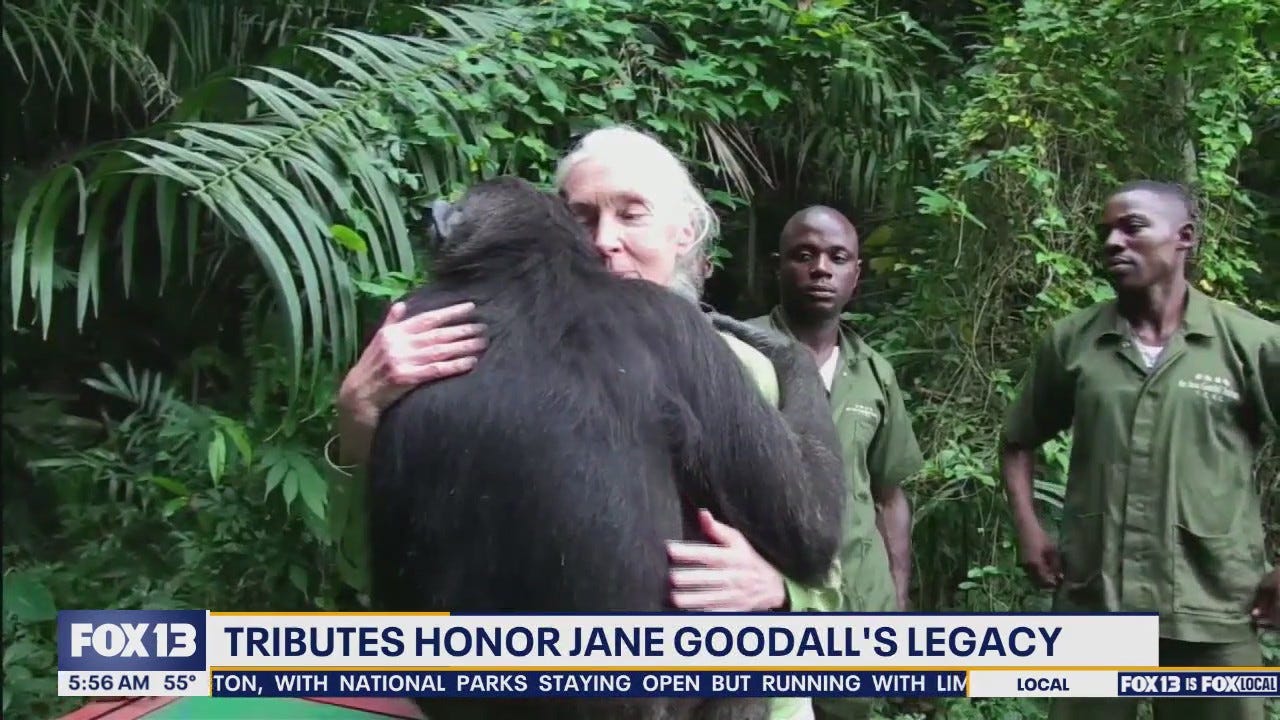Work beyond ‘normal’ retirement is not for everyone, but it is one of our most available tools to help people stay connected, active and purposeful.

Tributes honor Jane Goodall’s legacy
Jane Goodall, the famed conservationist known for her expertise on chimpanzees and her globe-spanning advocacy of environmental causes, has died.
Fox – Seattle
Sometimes it seems like everyone is working later into life. I saw an obituary for Jane Goodall, who made about 300 appearances a year into her 90s. There has been an outpouring of admiration for Goodall and how she lived a purposeful, meaningful and active life all the way to her death at age 91.
You might assume from this that she is a new model for how we should live our longer lives, but Americans, in general, remain deeply wedded to the notion that work should end early, by the mid-60s, if not sooner.
Jane Goodall was the exception rather than the retirement rule
In 1962, American men worked, on average, to 66. Now they retire at slightly below 65despite the fact that average life expectancy has increased during that period by nine years.
Even the hypothetical of working longer in exchange for a much longer life scares Americans. In a poll by my organization, the Longevity Projectwhich will be released later this month, along with the financial services company Corebridge Financial73% of adults said they were concerned by the idea of working 10 years longer in order to support a 100-year life.
Younger respondents in Generation Z were even more horrified, in a supermajority of 81%, by the idea of adding a decade more of work to support what amounts to over 20 more years of life.
It is a shame, because Goodall’s story is not a singular one. Extensive research has shown that work in the second half of life is an important source of social connection, purpose and good health.
One study of about 83,000 older adults over the course of 15 years found that those who worked past the traditional retirement age of 65 were up to three times more likely to report being in good health than those who did not.
Other studies have shown that for healthy retirees, a one-year older age at retirement correlated with an 11% lower risk of all-cause mortality.
It is possible that poor-quality or high-stress work in later years can undermine the positive health benefits of social connection, but for most people and most work, the positive impact on our physical and cognitive health is pretty clear.
Part of the problem is that we have sold longer careers wrong.
Work can provide social connection that many Americans need
Most of the arguments about working longer relate to the need to prop up retirement plans like Social Security. Those arguments are certainly correct – a German panel has suggested that its country’s workers will eventually have to stay employed eight years longer to support public retirement plans – but they are never persuasive. Who wants to keep working to support some future, unknown generation?
Not Americans, and certainly not the Frenchwho blocked streets, overturned cars and ground the country to a halt the last time the retirement age was raised.
Fortunately, people in some countries, like Japan and Korea, have come to view work as an antidote to the loneliness and social isolation of the second half of life. That view is supported by the fact that Japanese companies are unusually solicitous of the needs of older workers, affording them wide access to rewarding, flexible and safe work.
Work beyond “normal” retirement is not for everyone. Even in Japan, only half the people ages 65 to 69 still workbut work is a natural source of social connection and healthy aging at a time when Americans are desperate for both.
Not all work is created equal for these purposes, of course. We should also remember that some work is physically punishing and difficult to continue past 60, or sometimes even 50. Even so, we should also remember that retirement for blue-collar workers is typically not the stuff of retirement ads: no glorious cruises, no jet skiing, no cozy heart-shaped bathtubs overlooking the ocean.
Just as financial resources are unevenly distributed, so are social connections.
The number of those without any college education who report having six or more close friends is only 17%, and the percentage of those with a high school education or less who report having no close friends is 24% ‒ eight times the figure from 1990 and more than twice the rate for college graduates.
Too often, “retirement” for older blue-collar or lower-income workers means financial jeopardy, loneliness and the poor health associated with both. The backdrop to all of this is our current crisis of loneliness, one that is directly undermining our chances at healthy longevity. Work is one of our most available tools to help people stay connected, active and purposeful.
As we age, we need both a broader cultural understanding of the opportunity and more companies that are committed to supporting older workers.
Kenneth Stern is the founder of the Longevity Project and hosts the popular “Century Lives” podcast from the Stanford Center on Longevity. The former CEO of NPR, he is author of a new book, “Healthy to 100: How Strong Social Ties Lead to Long Lives,” and the newsletter “Three Not-So-Bad Things on Aging and Longevity.”
Source link




